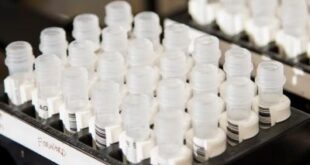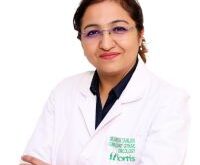As our body changes over time, our health needs to change. Every woman experiences a rollercoaster of hormonal changes throughout her life. Hormones play a vital role in a woman’s life, influencing various physical and emotional changes throughout different stages. From puberty to post menopause, hormonal fluctuations shape a woman’s reproductive health, overall wellbeing, and the quality of life.
Most women don’t even realize that their behaviour is associated with hormone change. Plus, in many households, such topics are only whispered about or brushed under the rug. But it’s all part of a being a woman. However, it’s important to understand how different hormones affect different phases of a woman’s life. Hormonal fluctuations do not just affect a woman’s physique but has a significant impact on mental and emotional wellbeing. Their effect varies in different phases of a woman’s life. Take a look at the various stages that a woman experiences in her life.
Puberty (Ages 10-14)
Puberty marks the beginning of a woman’s reproductive journey. During this stage, the hormones GnRH triggers the release of luteinizing and follicle-stimulating hormones (LH and FSH), which stimulate estrogen production and ovarian development. This leads to breast development and growth, body hair growth, menstruation and increased growth rate.
Menstruation (Ages 21-35)
In this stage estrogen and progesterone levels fluctuate, preparing the body for potential pregnancy. Women may experience:
- a) Premenstrual syndrome (PMS) symptoms like cramps, bloating and mood swings.
- b) Irregular cycles due to stress, diet and exercise
- c) Fertility and reproductive health
Pregnancy
During pregnancy, estrogen and progesterone levels surge to support fetal development. These hormones prepare the uterus and placenta and ready the breasts for breastfeeding. Women may experience,
- a) Morning sickness due to hormonal changes
- b) Weight gain and body changes
- c) Breast tenderness and enlargement
After the delivery, the estrogen and progesterone levels drop. But prolactin levels exponentially increase. This hormone is responsible for stimulating the growth of mammary glands. That’s why a woman’s breasts look fuller and start generating milk. During the postpartum period the woman may experience mood swings and emotional changes, weight gain and decreased sex drive and breastfeeding and lactation.
Perimenopause (Ages 35-55)
Estrogen and progesterone levels gradually decrease, leading to
- Irregular periods and menstrual changes
- Hot flashes and night sweats
- Vaginal dryness and decreased libido
- Mood swings and emotional changes
Menopause (Ages 45-55)
Menopause marks the end of a woman’s reproductive journey. Estrogen and progesterone levels remain low, and women may experience:
- Hot flashes and night sweats
- Vaginal dryness and decreased libido
- Mood swings and emotional changes
- Weight gain and body changes
In total, a woman’s hormonal journey is complex and influenced by various factors. Understanding the different stages of hormonal changes can help women better navigate their reproductive health, overall well-being and quality of life. Apart from these, a woman can do a few other things to manage hormonal changes.
The first step is to learn to recognize your body’s hormonal changes and symptoms. A woman can keep a record of all her symptoms in a calendar and analyse them to see if there is a pattern. She can even use a free period tracking apps available online. Also try to understand certain other triggers which disturbs the hormones and creates an imbalance. For instance, eating spicy food during the menstrual cycle can cause more cramps, or not getting sufficient sleep can make one more irritable. Be self-aware to manage the symptoms in a better way.
By being aware of the physical and emotional changes that occur during each stage, women can take proactive steps to manage their health and make informed decisions about their care.
(Dr. Ayesha Gulzar, Consultant – Obstetrics & Gynecology, Milann Fertility Center, Bengaluru)
 Newspatrolling.com News cum Content Syndication Portal Online
Newspatrolling.com News cum Content Syndication Portal Online







